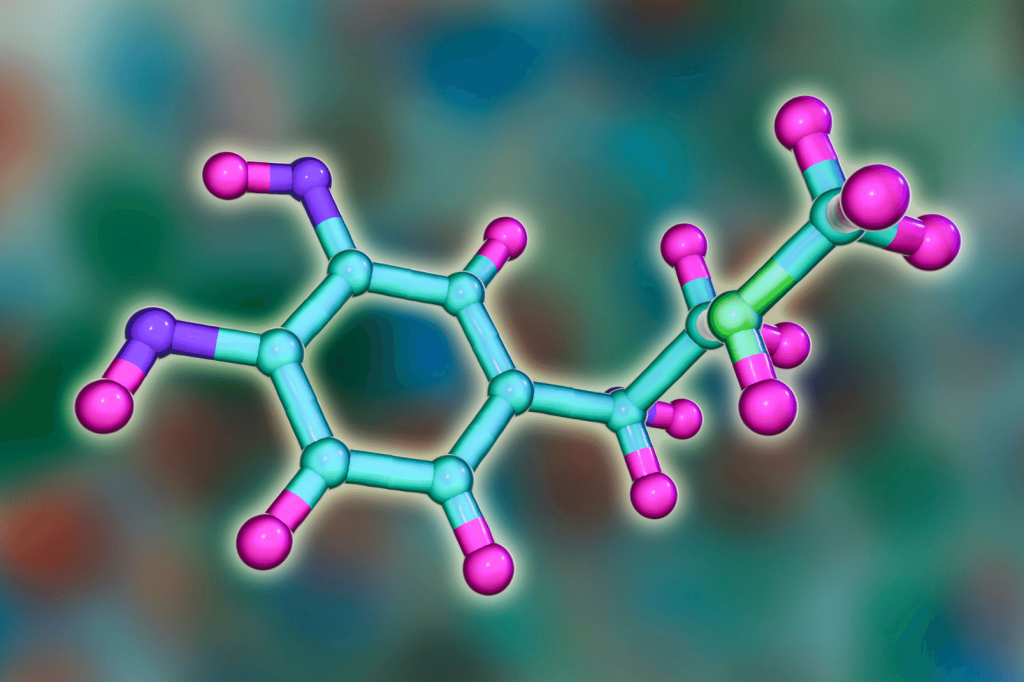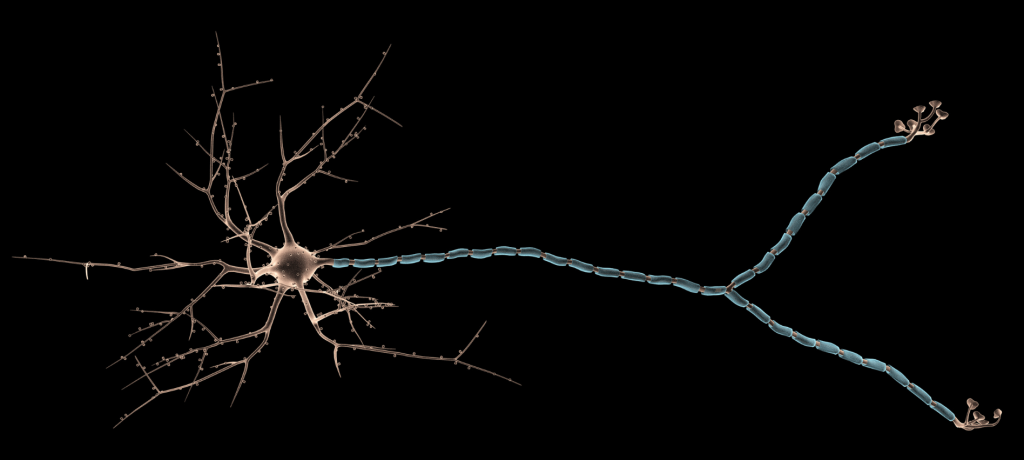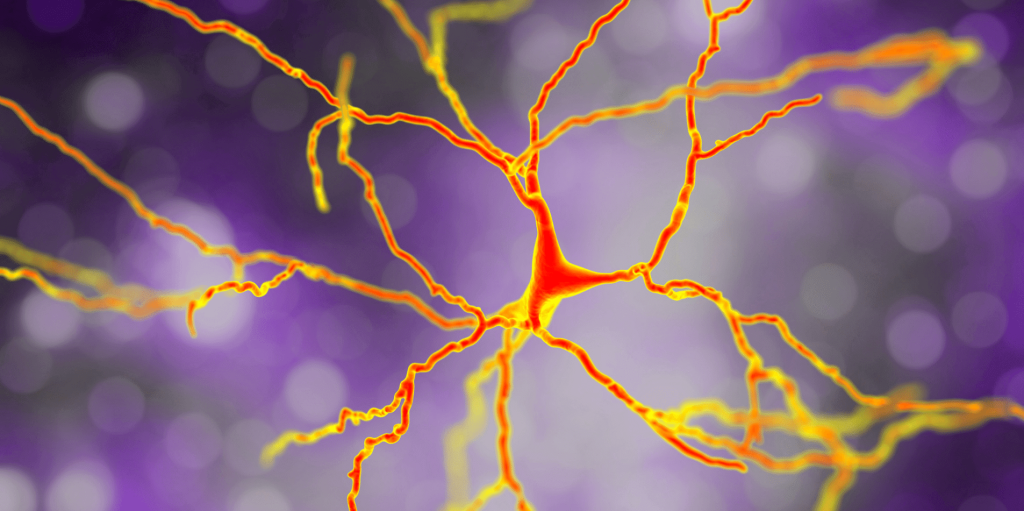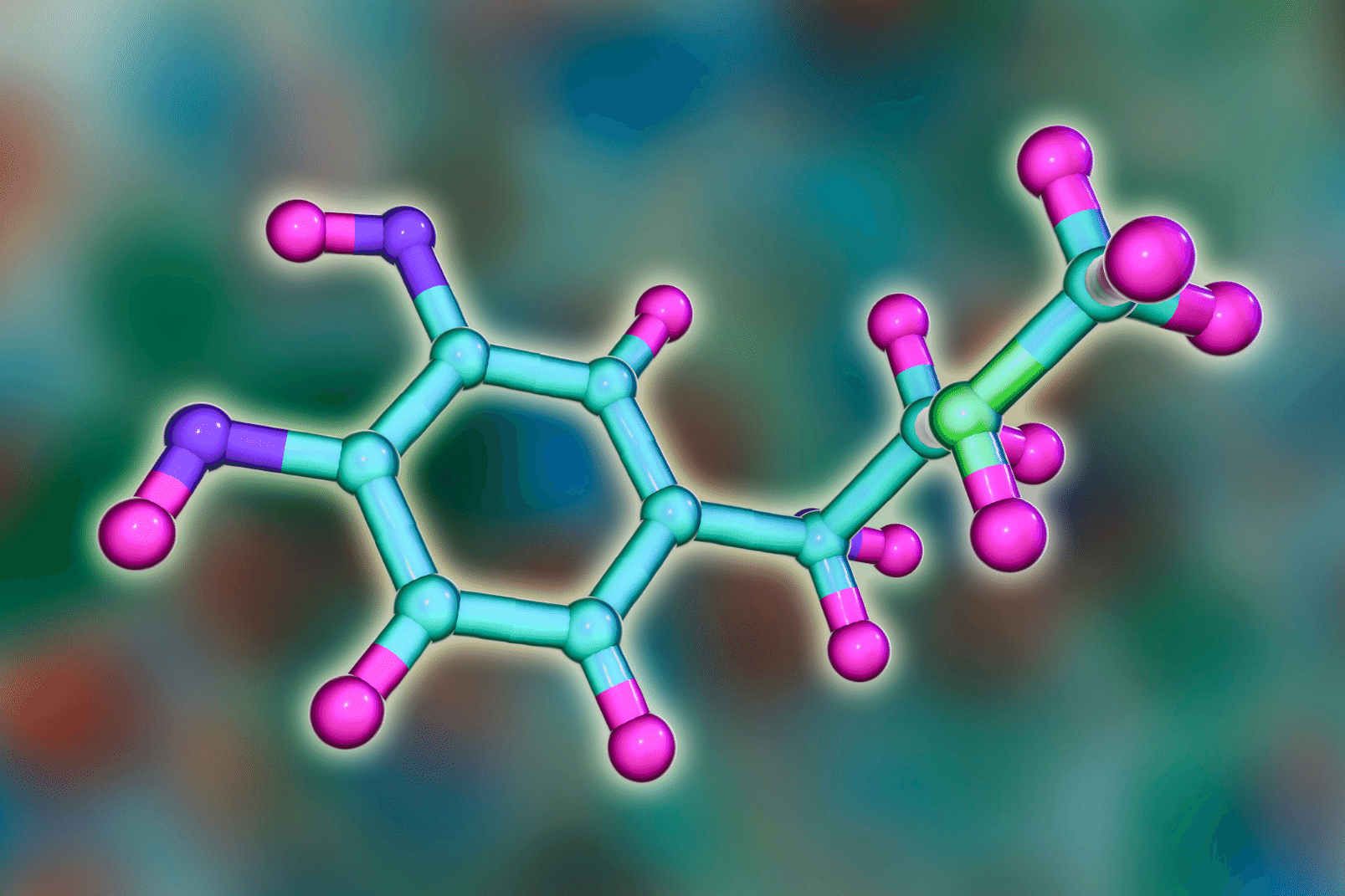Neurotransmitter dominance is an active area of research since both genetics and environment shape your personality. The only way to directly measure neurotransmitters involves cutting the skull open, so none of the dominances come from direct measurements of neurotransmitter levels in humans.
Instead, most of these links are indirectly deduced from what we know about how these neurotransmitters affect our thoughts and actions, and subsequently supported by genetic studies. In this article, we’ll cover neurotransmitter dominances as described by Drs. Helen Fisher and Eric Braverman.
What Are Neurotransmitter Dominances?

The human brain is one of the most marvelous and complex organs in your body with intricate neuronal connections. Neurotransmitters are molecules that facilitate the communications between neurons. The neurotransmitters play a crucial role in regulating various bodily functions including mood, behavior, and cognition.
Neurotransmitter dominance refers to:
- The individual tendency to have high or low levels of neurotransmitters in the brain
- How these variations can impact an individual’s personality and behavior.
Dr. Helen Fisher is an anthropologist, whereas Dr. Eric Braverman is a medical doctor. They independently studied neurotransmitters and how they may be linked to aspects of a person’s behavior and personality traits. They believe neurotransmitter dominances can significantly impact an individual’s personality traits and tendencies.
According to Dr. Fisher, individuals can have different styles of thinking, she categorizes them as explorers, builders, directors, and negotiators. These correspond to dominances in dopamine, serotonin, testosterone, and estrogen, respectively. She believes each of those categories is linked to the dominance of a particular neurotransmitter. For example, dopamine-oriented people are considered “explorers” and more novelty-seeking.
Whereas, Dr. Braverman categorizes people into acetylcholine, dopamine, serotonin, and GABA types. Each dominant neurotransmitter is associated with certain personality traits and behaviors.
Can You Have More Than One Neurotransmitter Dominances?
Yes, individuals can have more than one neurotransmitter dominance. People can score high in two neurotransmitters on the Braverman Personality Type Assessment and so they can be categorized as a mix of two, for example, one can be an Explorer-Director or Builder-Negotiator.
Now, let’s look into different neurotransmitter dominances.
Braverman Acetylcholine Dominance Personality
Acetylcholine is a key neurotransmitter in the brain responsible for memory, creativity, movement, and more. Dr. Braverman refers to acetylcholine-oriented people as the “creative acetylcholine nature”.
Cognitive Traits of acetylcholine dominances include being:
- Highly creative and open to new ideas
- Quick thinkers who consider others’ perspectives important.
- Devoted to optimizing things regardless of the effort required
- High inflexibility, creativity, and spontaneity, embracing anything new and exciting.
When their acetylcholine nature is in balance, they become intuitive and innovative, finding pleasure in words, ideas, and communication..
They excel in roles such as:
- Counselors
- Mediators
- Think tank members
- Yoga and meditation instructors
- Religious leaders
- Public service positions
- Artistic
- Writing
- Advertising
- Acting professions
In terms of personality, acetylcholine-dominant people are:
- Extremely social and charismatic.
- Relish meeting new people and effortlessly create friendships.
- Perceived by others as authentic and grounded, finding their charm endearing.
- Natural at forming relationships, and they invest time and energy to nurture meaningful relationships.
- Optimistic and see the potential in people.
- Attentive to children’s needs and romantic gestures toward their partners.
- Empathetic and avoid hurting other people.
- Adventurous and welcome new experiences. Not surprisingly, they love to travel. Their thirst for knowledge makes them interesting to others and fun to talk to.
Braverman and Fisher’s Dopamine Personality
Dopamine is a very important neurotransmitter in the brain and is associated with pleasure, reward, motivation, and goal-directed behavior. People with a dominant dopamine personality may be:
- Adventurous
- Risk-takers who seek new and exciting things
- Goal-oriented and may even display impulsiveness
Dr. Fisher calls dopamine-dominant people “explorers”.
According to Dr. Fisher, these explorers are known for their high energy, optimism, and abundant generation of ideas. Notable examples of dopamine-oriented thinkers cited by Fisher include:
1. Barack Obama
2. Gloria Steinem

3. Peter Thiel, co-founder of PayPal.
Despite their diverse backgrounds and contributions, they share a common biological temperament driven by dopamine.
In a work environment, explorers offer numerous advantages:
- They are quick thinkers, always on the lookout for opportunities, and excel in handling crisis situations.
- Their ability to think fast and seize opportunities makes them valuable assets in the workplace, where their adaptability and creativity can drive success.
- Additionally, their aptitude for dealing with crises efficiently ensures smooth problem-solving and effective decision-making.
According to Dr. Braverman, dopamine-oriented individuals are full of energy. They are able to dedicate all their focus to one task and execute it well. They are likely to be:
- Strong-willed individuals who know exactly what they want and how to achieve it.
- Quick thinkers and self-confident in their actions.
- Very rationale, making them more comfortable dealing with facts and figures than emotions.
- Good at critical self-assessment but might not handle criticism from others well.
- Focused on the task at hand, they take pride in their achievements
- Tireless with more heightened alertness, so they may need less sleep than others.
- Not very sensitive to emotions and may prioritize reason over feelings.
- In relationships, they might appear distant from their children, and the stability of their marriage may hinge on the loyalty and goodwill of their spouse.
Strategic thinking, masterminding, inventing, problem-solving, envisioning, and pragmatism are areas that excite them, and they perform well under stress. Although this doesn’t exclude them from other careers, dopamine-dominant individuals will often be:
- Doctors
- Scientists
- Researchers
- Inventors
- Engineers
- Generals
- Architects
According to Dr. Braverman, dopamine-dominant individuals enjoy activities such as:
- Playing chess
- Listening to audiobooks
- Challenging crossword puzzles
Braverman and Fisher’s Serotonin personality
Serotonin is a neurotransmitter that plays a crucial role in regulating mood, emotions, and social behavior. It is often associated with feelings of well-being, happiness, and contentment. Low serotonin levels can lead to mood disorders and lowered satisfaction in life.
Serotonin-dominant individuals tend to be emotionally stable, empathic, and seek contentment and social harmony. Dr. Fisher calls them “builders”. Dr. Braverman calls it the “playful serotonin nature.”
These individuals exhibit the following characteristics:
- Cautious and collected demeanor, showing composure even in demanding situations.
- Effective and high-performing under pressure, highlighting their resilience and adaptability.
- Great attention to detail, meticulous, and bring ideas to fruition with precision.
- Very cheerful and uplift those around them.
- Positive outlook and optimism create a welcoming and encouraging atmosphere in both personal and professional settings .
Dr. Fisher believes that if an “explorer” is presented with an idea, it would be the serotonin-oriented “builder” who would come up with a plan to execute it.
Dr. Braverman believes individuals with the playful serotonin nature may have these characteristics:
- The ability to live in the present moment, being realistic and highly responsive to sensory input, while occasionally displaying impulsiveness.
- Engaging in activities for the sheer love of the experience, rather than focusing on the end result, this brings them a sense of accomplishment.
- Embracing change, readily switching tasks, and seeking innovative approaches to repetitive ones.
- Trying new foods, exploring new hobbies, and planning different vacations each year are all part of their adventurous nature.
- In relationships, passionate but value freedom and independence.
- Their impulsivity and love for new experiences can lead to many varied friendships, although they may not always be deep-rooted.
- A strong sense of loyalty binds them to coworkers, friends, and family, making them appreciated for their practical approach and ability to make the best of any situation.
- Maintaining order and routine might not align with their nature, occasionally impacting their closest relationships .
In balanced states, individuals with a serotonin nature are receptive to stimuli, physically coordinated, and resourceful. Challenges and setbacks do not deter them, as they find excitement in problem-solving. Their serotonin-dominant disposition makes them well-suited for professions requiring:
- Motor skills
- Hand-eye coordination
- Flexibility, and crisis management .
According to Dr. Braverman, serotonin-dominant individuals enjoy activities that offer them lots of excitement such as:
- Parties and celebrations
- Mountain climbing
- Skydiving
Braverman GABA Dominant Personality
Gamma-Aminobutyric Acid (GABA) is a neurotransmitter that functions as an inhibitory neurotransmitter in the brain. It plays a crucial role in regulating anxiety, stress, and overall neuronal excitability. GABA has a calming and relaxing effect on the nervous system.
Individuals who are GABA dominant tend to be:
- Calm amidst chaos, naturally embodying traits of objectivity
- Emotionally stable and tend to not worry too much
- Level-headed
- Punctual
- Practical
- Confident
- Disciplined and organized
Dr. Braverman calls them as having the “stable GABA nature” .
GABA-dominant individuals often gravitate toward careers such as:
- Administrators
- Accountants
- Security officers
- Nurses
- Medical technicians
- Air-traffic controllers
- News reporters
- EMTs
- Meeting planners
- Bus drivers
- Homemakers
In any job or group setting, the GABA-natured person serves as a grounding force, remaining focused on the task at hand and usually deferring to the majority. They excel as team players.
The GABA-natured person tends to enjoy:
- Both group activities and intimate connections.
- Making others comfortable
- A fulfilling long-term marriage
- Engaging in religious worship and activities
- History books and biographies
- Collecting memorabilia and creating scrapbooks.
Fisher’s Testosterone Personality
Testosterone is a hormone and not a neurotransmitter. Although mostly regarded as a male hormone, females also have it.
Testosterone plays an important role in many physiological processes, including cognition, in both men and women. It is often associated with traits such as assertiveness, competitiveness, and sexual desire .
Termed as “directors” by Dr. Fisher, testosterone personality type people demonstrate:
- Remarkable analytical and logical abilities
- Proficiency in music and mathematics as they possess a keen understanding of rule-based systems
- Competitiveness
- Goal-orientedness
- Decisiveness
Innovative thinkers, like Apple founder Steve Jobs and politician Hillary Clinton, fall into this category. With their visionary approach, directors lead transformative changes, especially in technology, science, and other rule-bound domains.
Their ability to conceptualize and implement groundbreaking ideas propels them to the forefront of progress, shaping and influencing the world in significant ways.
Fisher’s Estrogen Personality
Like testosterone, estrogen is also a hormone. It is present in both males and females albeit in smaller amounts in males. Beyond its roles in the development and functioning of the female reproductive system, estrogen also has various effects on the brain and body.
Estrogen can in fact modulate neurotransmitter systems in the brain including serotonin, dopamine, and norepinephrine . Therefore, estrogen can influence mood, cognition, and behaviors in both genders.
Dr. Fisher refers to estrogen-dominant individuals as “negotiators”. They approach challenging situations by carefully considering all options and demonstrating diplomatic intelligence. They also excel in team-building and conflict resolution, often pursuing careers in writing and public relations .
Their adeptness in navigating complex situations, fostering collaboration, and utilizing their communication skills has contributed to their success in various fields. Lastly, negotiators’ ability to find common ground and harmonize differing perspectives makes them valuable assets in achieving mutually beneficial outcomes .
Prominent figures such as Charles Darwin, Oprah Winfrey, and Bill Clinton exemplify the negotiator type.

Is There Scientific Evidence to These Categorizations?
While the concept of neurotransmitter dominance personality types is intriguing, it is important to consider the scientific evidence supporting these categorizations.
The link between neurotransmitters and personality is a complex area of research, involving both genetics and environmental factors .
In a study published in Nature Communications, researchers investigated the relationship between genetic variations related to neurotransmitter function and personality traits. They found two key components:
1. Specific genetic variations related to neurotransmitter function were associated with distinct personality traits. For instance, variations in the DRD2 gene, which is involved in dopamine signaling, were linked to traits like novelty-seeking and impulsivity.
2. Genetic variations in the 5-HTTLPR gene, which affects serotonin signaling, were associated with emotional stability and empathy.
Another study identified specific single nucleotide polymorphisms (SNPs) associated with cognitive abilities and personality traits. Their findings suggest that:
1. Genetic variations in the BDNF gene, which is involved in neuroplasticity and acetylcholine signaling, were linked to cognitive flexibility and learning.
2. Similarly, variations in the COMT gene, involved in dopamine, epinephrine, and norepinephrine signaling, were associated with cognitive performance and impulsivity.
Although the evidence supporting these categorizations is growing, personalities and cognitive functions are influenced by both genetic variations and environmental factors.
What to Do With Your Neurotransmitter Dominance and Tendencies?
Understanding one’s neurotransmitter dominance can have significant implications for personalized approaches to cognitive support, fitness, and nutrition.
Fitness and nutrition practitioners like Charles Poliquin have advocated training and nutrition regimens based on an individual’s neurotransmitter dominance .
One study found that participants who underwent personalized brain training reported significant improvements in cognitive functions, including memory and attention. The researchers also noted positive changes in mood and overall well-being in individuals who followed tailored cognitive support regimens based on their neurotransmitter dominance .
Understanding your neurotransmitter dominance can empower you to make informed decisions about:
- Cognitive support
- Fitness
- Nutrition
For instance, individuals with GABA dominance, known for their calm and relaxed demeanor, may benefit from mindfulness practices and stress-reducing activities.
On the other hand, those with dopamine dominance, who are driven by novelty-seeking and risk-taking, might thrive in challenging and adventurous environments. By living according to your tendencies, you can enhance your overall well-being and cognitive performance.
As research in this field continues to evolve, personalized approaches to brain health and cognitive support will likely play an increasingly prominent role in optimizing human potential.
References:
- Sheffler ZM, Reddy V, Pillarisetty LS. Physiology, Neurotransmitters. Published online 2023. Accessed August 24, 2023. https://pubmed.ncbi.nlm.nih.gov/30969716/
- Rosicky BM, Hall EE. Using personality and temperament to predict exercise behavior: A pilot study of the Braverman Nature Assessment. International Journal of Exercise Science. 2022;15(5):341.
- LJ. Helen Fisher offers insights into what drives personality in Elon lecture. Today at Elon. Accessed August 24, 2023. https://www.elon.edu/u/news/2018/10/26/helen-fisher-offers-insights-into-what-drives-personality-in-elon-lecture/
- Drtimkelly.net. Accessed August 24, 2023. https://www.drtimkelly.net/fileupload/bravermantestresultsinfo.pdf
- Juárez Olguín H, Calderón Guzmán D, Hernández García E, Barragán Mejía G. The role of dopamine and its dysfunction as a consequence of oxidative stress. Oxid Med Cell Longev. 2016;2016:1-13. doi:10.1155/2016/9730467
- Braverman test neurotransmitter profile. Bravermantest.net. Published August 31, 2021. Accessed August 24, 2023. https://bravermantest.net/
- Wu C, Sun D. GABA receptors in brain development, function, and injury. Metab Brain Dis. 2015;30(2):367-379. doi:10.1007/s11011-014-9560-1
- Delgado BJ, Lopez-Ojeda W. Estrogen. Published online 2023. Accessed August 24, 2023. https://pubmed.ncbi.nlm.nih.gov/30855848/
- Thys B, Grunst AS, Staes N, Pinxten R, Eens M, Grunst ML. The serotonin transporter gene and female personality variation in a free-living passerine. Sci Rep. 2021;11(1). doi:10.1038/s41598-021-88225-4
- Fischer R, Lee A, Verzijden MN. Dopamine genes are linked to Extraversion and Neuroticism personality traits, but only in demanding climates. Sci Rep. 2018;8(1):1-10. doi:10.1038/s41598-017-18784-y
- Schlick JP. What type of athlete are you? (this test will tell you.). The Inertia. Published August 28, 2015. Accessed August 24, 2023. https://www.theinertia.com/surf/the-five-elements-of-athlete-its-all-about-neurotransmitters/
